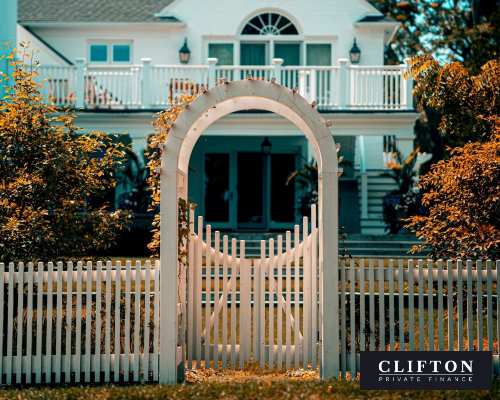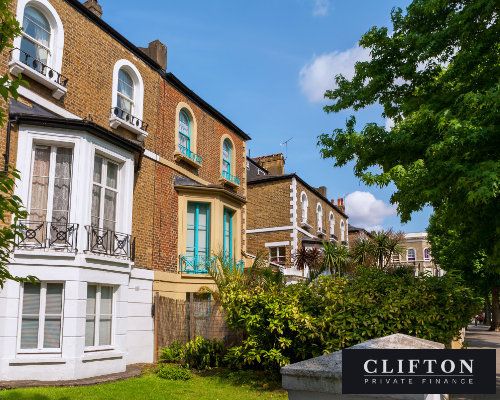Second Charge Mortgages
Get Second Charge Mortgage Quote
For raising finance against your home or a buy to let property

Key Takeaways
- A second charge mortgage allows you to borrow money against your home (or another property you own) that already has a mortgage against it.
- You can borrow from £10,000 up to 6 times your income or more, and up to a total of 100% of the value of your home (minus your existing mortgage).
- They're generally quick to arrange (2-3 weeks). This timescale can be quicker assuming an automated valuation can be done on the property
- They provide excellent flexibility with what you can use funds for. They're typically much cheaper than a personal loan or credit card in terms of interest rates
- But have higher rates than a standard mortgage (however, they can help you avoid ERCs or protect an existing low fixed rate compared to remortgaging)
- Drawdown product option - only drawdown funds as you need them (ideal for heavy refurb projects) - for more information see our blog on HELOC loans
- Terms from 1-30 years
We provide market leading second charge mortgage solutions for UK clients.
Call us on +44 117 959 5094 to discuss your requirements, or request a free quote below.
Get Second Charge Mortgage Quote
Second charge mortgages allow you to borrow more money through your property, without the need to remortgage completely. This means you can access extra funds while maintaining your existing mortgage deal, which can be particularly useful if you want to avoid higher interest rates or early repayment charges associated with remortgaging.
These mortgages are secured against your property, meaning they are typically available at lower interest rates than unsecured loans, such as credit cards or personal loans. They’re an ideal solution for consolidating debt, funding home improvements, or financing large purchases, as they allow for more flexibility in how the funds can be used. Unlike remortgaging, a second charge mortgage doesn’t alter your primary mortgage deal, so you can keep any favourable terms you’ve secured, such as a low interest rate.
Written by: Sam Hodgson
Last updated: 16/1/2026
Second Charge Mortgage Case Studies
Check out our Q&A on second charge mortgages:
What is a Second Charge Mortgage?
A second charge mortgage is a mortgage taken out against a property with an existing mortgage secured on it.
For example, if you have an outstanding mortgage on your home but want to raise additional funds, you could take out a second charge mortgage.
It’s called a "second charge" mortgage because it will be second in line for repayment if you even need to sell your property to repay the mortgage. So, your first charge (original mortgage) has priority in being repaid first, followed by your second charge mortgage.
When Should You Consider a Second Charge Mortgage?
A second charge mortgage can help homeowners consolidate debts, raise money to make home improvements or buy additional property.
It’s particularly useful for those who don’t want to change their primary mortgage deal but still want to raise additional funds.
Here are some examples of why you may want to use a second charge mortgage:
Credit Score Changes
If your credit score is higher now than when you took out your first mortgage, you may not want to remortgage because you could have to pay a higher interest rate on the value of your entire mortgage.
However, if you leave your current mortgage as is and raise additional finance through a second charge mortgage, you’ll only pay a higher rate on the second amount you’re borrowing.
Get Second Charge Mortgage Quote
Consolidating Your Unsecured Debts
A second charge mortgage might be a cheaper, consolidated option if you have various unsecured debts, such as personal loans, credit cards, and other types of loans.
Because you can secure a second charge mortgage against your property, they usually have cheaper interest rates than unsecured borrowing forms.
Later down the line, consolidating your debts can also improve your future remortgaging options.
Avoiding Early Repayment Charges (ERCs)
Particularly if you have a long term fixed rate mortgage, you may want to avoid remortgaging early to avoid being stung by hefty early repayment charges (ERCs).
ERCs can cost thousands, so if you want to raise additional funds against your property without paying them, a second charge mortgage is a popular option.
Protecting Low Interest Rates
Similarly, if you’re currently on a low-rate mortgage that you know will get more expensive if you remortgage (if, for example, interest rates have gone up since you took out your loan), you may not want to remortgage your entire property just to raise some additional funds.
You’ll have to pay a higher interest rate on your entire loan rather than just your portion of additional borrowing.
Instead, leaving your current mortgage as is and taking out a second charge against your home can protect your existing low rate while giving you access to further borrowing.
Because the new mortgage is ‘second charge,’ your existing lender will usually be happy with it, and it typically won’t increase your current rate. They will always be repaid in the first instance (first charge), and their agreement with you is the priority.
Get Second Charge Mortgage Quote
Relaxed Lending Criteria
There’s a more relaxed approach to your loan purpose with a second charge mortgage. Lenders will consider:
- Paying a tax bill
- Purchasing a new property (including an investment property)
- Refurbishments
- Paying for legal or medical fees
- 6 times salary borrowing
There’s also a more relaxed criteria on your Loan to Income ratio (LTI), and lenders will often let you borrow more than 4.5 times your income (up to 6 times in some cases).
Quicker Than Remortgaging
Completions are also much quicker for second charge mortgages than full remortgages (on a case-by-case basis), so if you need funds fast it can be a great option.
It's important to remember that a second charge loan is secured against your home, so if you fail to keep up with repayments, your property could be repossessed.

What Can I Use a Second Mortgage For?
You can use a second charge mortgage to:
- Consolidate debt
- Fund home improvements
- Extend a lease
- Fund business deals
- Raise a deposit for an additional property purchase
- Purchase a car (maximum term of 5 years)
- Fund a wedding
- Pay for school fees
- Pay for medical fees
- Pay a tax bill
How Does a Second Charge Mortgage Work?
Your primary mortgage remains intact and unchanged when you apply for a second charge mortgage.
You apply for a second charge mortgage through a lender who considers your income, credit score, and equity in the property through your current mortgage.
The loan amount is based on the equity in your property – you can typically borrow more than you can with an unsecured personal loan.
You continue to pay your first mortgage, and the second charge mortgage is repaid separately, so you have two mortgage repayments each month.
If you can’t keep up with your mortgage repayments and your house is repossessed, your first mortgage has ‘priority’ on being repaid with the proceeds of your house sale before the second charge mortgage.
Check out our video explaining the process of how to get a second charge mortgage
Pros and Cons of a Second Charge Mortgage
If you’re taking out a second charge mortgage for the right reason, the pros will generally outweigh the cons by some distance.
If you’re unsure as to whether a second charge mortgage is right for you or whether you’d be better off remortgaging or choosing a different loan option, you can book a free consultation with our mortgage advisers today and ask any questions you may have.
Pros:
- Potentially lower interest rates than unsecured loans
- Potentially better rates than remortgaging
- Borrow more than a personal loan
- Protecting your primary mortgage deal
- Fast and flexible
Cons:
- Fees and charge independent from your existing mortgage
- You’ll have 2 separate mortgage payments each month
- May have a higher interest rate than your first mortgage
Get Second Charge Mortgage Quote
Alternatives to Second Charge Mortgages
Some alternatives to second charge mortgages include remortgaging, a bridging loan, a further advance on your current mortgage, or taking out a personal loan.
Remortgaging may be cheaper in some cases, but it can become more expensive if you have ERCs, want to protect your existing low interest rate, or now have a poor credit score. It’s also likely to be slower (whereas a second charge can be arranged in 2-3 weeks), and you’ll be limited on what you can spend your funds on.
Most remortgage lenders will limit your purpose to property, while a second charge mortgage will allow you to use the funds for anything.
Getting a further advance mortgage on your current deal can also be a good option, but many people find affordability is a stumbling block. For example, their income doesn't support the bigger loan they need. A second charge mortgage will typically allow you to borrow more against your income than a further advance.
Personal loans tend to have higher interest rates and lower borrowing limits because they are not secured against any assets, such as property.

How Much Can I Borrow with a Second Charge Mortgage?
You can generally borrow up to 100% of your total loan to value (LTV) with a second-charge mortgage.
It’s calculated as your total loan-to-value across both of your mortgages.
And remember that the higher your overall loan to value, the higher your interest rates will be.
Second Charge Mortgage Calculator
Use our second charge mortgage calculator below to get an indicative quote on costs and fees. It offers an estimate of potential interest payments based on the amount you're looking to borrow, the length of term and your interest rate.
Second Charge Mortgage for Debt Consolidation
Using a second charge mortgage for debt consolidation is one of the major uses for a second charge.
Say, for example, you have an unsecured personal loan, some credit card debt and a car loan outstanding - it's possible to take out a second charge mortgage on your property to pay off all these other debts.
Because second-charge mortgages are secured against your property, the interest rates are generally much lower than other forms of debt, such as unsecured personal loans. This is because your lender has the security of your house to fall back on in case you're unable to keep up with your repayments. It's less risky for them, so they can afford to offer you a cheaper rate. So you can save money in the long run.
It can also make repaying your debt easier because you only have one monthly repayment to worry about, and it's easy to keep track of.
It can also make remortgaging easier later on because you only have one other form of debt (your second charge), which looks cleaner on your credit profile to lenders.
To determine if a second-charge mortgage is the right debt consolidation option for you, it's best to speak to an adviser to get an overview of your wider finances and explore all your options. You can book a consultation with us to do this below.
And to learn more about how it works and the pros and cons, read our full guide to second-charge mortgages for debt consolidation.
Get Second Charge Mortgage Quote
Second Charge Mortgages for Home Improvements
One of the most popular uses for second charge mortgages is for home improvements.
The criteria on what you can spend money on from a second charge are much wider than first charge mortgages or other types of loans - so there's plenty you can do with your home to improve your living space or increase its value.
Stuck for ideas? Here's a list of the most popular home improvements in the UK according to research from Uswitch.
| Rank | Renovation | Annual UK searches |
|---|---|---|
| 1 | Build a shed | 13,862,640 |
| 2 | Landscaping | 3,949,440 |
| 3 | Attic insulation | 1,327,872 |
| 4 | Loft conversion | 1,206,240 |
| 5 | Window replacement | 1,030,680 |
| 6 | Outdoor kitchen | 959,040 |
| 7 | Roof replacement | 928,080 |
| 8 | Bathroom remodel | 773,640 |
| 9 | Kitchen backsplash | 678,960 |
| 10 | Home extension | 629,520 |
Why Use a Second Charge Mortgage Broker
It's common to use a mortgage broker, like us at Clifton Private Finance, when you're thinking about a second charge mortgage.
Here are a few reasons why:

We Know Our Stuff
We're experts in second charge mortgages. This means we can help you determine whether it's really the best option for you or if something else might work better. We review your situation and use our expertise to provide you with the best advice.

Rate Check
There are loads of different rates out there, and it can feel like a bit of a maze. That's where we come in. We know the market inside out, so we can help find and negotiate the best rates for you. You save time and money - win-win!

Paperwork? Sorted
The thought of all the forms and paperwork can feel overwhelming. Don't worry, we've got your back. We'll tell you what forms you need, help you fill them out, and make sure you know what you're signing up for.

We're Here for the Long Haul
Our help doesn't stop once you've got your mortgage. We're here for any questions or problems you might have down the line.
Using Clifton Private Finance isn't just about getting a second charge mortgage. It's about having someone who knows the ropes, can get you the best deal, and sticks around to make sure everything goes smoothly. It's not just a service, it's a partnership.
To see what we can do for you, complete our quote form or book a free consultation below.
Get Second Charge Mortgage Quote
FAQs
Are Second Charge Mortgages Regulated?
Yes, second-charge mortgages are regulated by the FCA (Financial Conduct Authority), just like standard mortgages.
Can I Have More Than One Second Charge Mortgage?
It is possible to have multiple second charge mortgages, but the interest rates will be higher the more loans you secure against your property.
How Long Does it Take to Get a Second Charge Mortgage?
The process typically takes 4-6 weeks and involves a property valuation, credit check, and legal paperwork. However, depending on the case, we can often secure second-charge mortgages within 2-3 weeks.
What Happens if I Can't Repay My Second Charge Mortgage?
Your lender can repossess your home and sell it to recover their debt. Legal action may also be taken to recover the outstanding amount.
Your first mortgage will be repaid first, as a priority, before your second charge.
Can I Use a Second Charge Mortgage for Business Purposes?
Yes, you can, but it depends on the lender you use. Some lenders allow a second charge mortgage to be used for business purposes or any personal use, and they’re more relaxed on your spending in general, but it depends on your lender's criteria. It's a good idea to seek professional advice to find a suitable lender.




